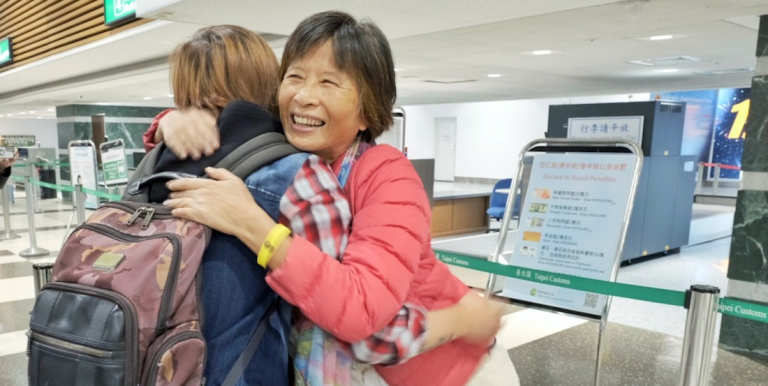
Government Coordinates Safe Passage Through Jordan As Regional Tensions Escalate Between Israel And Iran
New York, N.Y. — Taiwan’s government demonstrated swift diplomatic action this weekend, successfully evacuating 14 Taiwanese citizens from Israel through a carefully coordinated land route to Jordan as escalating tensions between Israel and Iran forced the closure of Israeli airspace to civilian traffic.
Taiwan’s Ministry of Foreign Affairs coordinated the safe evacuation of 14 citizens from Israel via land route to Jordan amid escalating Middle East tensions. The government raised travel alerts to orange for Israel and red for Iran, while maintaining contact with nine Taiwanese nationals still in Iran. This diplomatic success highlights Taiwan’s commitment to protecting its citizens abroad during international crises.
Coordinated Evacuation Effort Ensures Citizen Safety

The Ministry of Foreign Affairs (MOFA) announced that the 14 Taiwanese nationals departed Israel and arrived safely in Jordan early Sunday morning, June 15, 2025, aboard a bus specially arranged by Taiwan’s representative office in Israel. The successful operation came as Israeli authorities closed the country’s airspace following recent military escalations with Iran.
Yang Syin-yi, Taiwan’s representative to Jordan, personally greeted the evacuated citizens upon their arrival in the Middle Eastern kingdom, according to photographs released by MOFA. The image showed Yang, dressed in a formal suit, welcoming the relieved travelers as they completed the first phase of their journey home.
Taiwan’s representative office in Jordan is now coordinating the logistics for the citizens’ safe return to Taiwan, MOFA confirmed in an official press release. The government has not disclosed specific details about the transportation arrangements for security reasons, but officials emphasized their commitment to ensuring all citizens reach home safely.
Nine Taiwanese Nationals Remain in Iran
While celebrating the successful evacuation from Israel, MOFA revealed that nine Taiwanese citizens currently remain in Iran. The ministry stated it maintains close contact with these individuals and stands ready to provide assistance should any of them decide to leave the country.
The presence of Taiwanese nationals in both countries underscores the global reach of Taiwan’s citizens and the government’s responsibility to protect them during international crises. MOFA has established protocols for regular communication with citizens in high-risk areas, ensuring they receive timely updates about security conditions and evacuation options.
Taiwan’s diplomatic network, despite facing international recognition challenges, has proven effective in crisis situations. The successful coordination between representative offices in Israel and Jordan demonstrates the practical benefits of maintaining unofficial diplomatic relationships in strategic locations.

Travel Alert System Activated at Highest Levels
MOFA implemented its comprehensive travel alert system on Friday, raising the warning level for Israel to orange, the second-highest category, advising Taiwanese nationals to avoid traveling to the country unless absolutely necessary. The orange alert represents a significant escalation from the previous yellow warning level.
Simultaneously, the ministry elevated Iran’s travel alert to the maximum red level, the highest category in Taiwan’s four-color warning system. The red alert urges all Taiwanese nationals currently in Iran to leave the country as soon as possible due to severe security risks.
Taiwan’s travel alert system follows a graduated approach: gray represents the lowest risk level, followed by yellow for heightened caution, orange for avoiding non-essential travel, and red for recommending immediate departure. This systematic approach helps citizens make informed decisions about international travel during volatile situations.

Regional Crisis Sparks International Concern
The heightened security measures came in response to Israel’s airstrike against Iran, which targeted the Iranian nuclear program, key government facilities, and nuclear scientists.
According to reports from Al Jazeera, the strikes resulted in at least 80 deaths and wounded approximately 800 people over two days of intense military action.
Iran responded with retaliatory airstrikes, creating a dangerous cycle of escalation between the two nations.
The military exchanges have raised international concerns about broader Middle Eastern stability and the potential for expanded conflict involving regional allies and global powers.
The closure of Israeli airspace to civilian aircraft reflects the severity of the security situation and the government’s prioritization of military operations over commercial aviation.
This decision directly impacted thousands of international travelers, including the Taiwanese citizens who required alternative evacuation routes.
Taiwan’s Diplomatic Success Amid Challenges
The successful evacuation highlights Taiwan’s diplomatic capabilities despite facing international recognition challenges. The coordination between Taiwan’s representative offices in Israel and Jordan demonstrates effective crisis management and inter-office communication.
Taiwan maintains representative offices rather than formal embassies in most countries due to diplomatic pressure from China. However, these offices provide essential consular services, including emergency assistance during crises. The weekend’s evacuation success proves the effectiveness of this alternative diplomatic structure.
The government’s proactive approach to citizen protection abroad reflects broader foreign policy priorities emphasizing humanitarian concerns over political considerations. Taiwan’s willingness to coordinate with multiple regional partners showcases its commitment to international cooperation during emergencies.